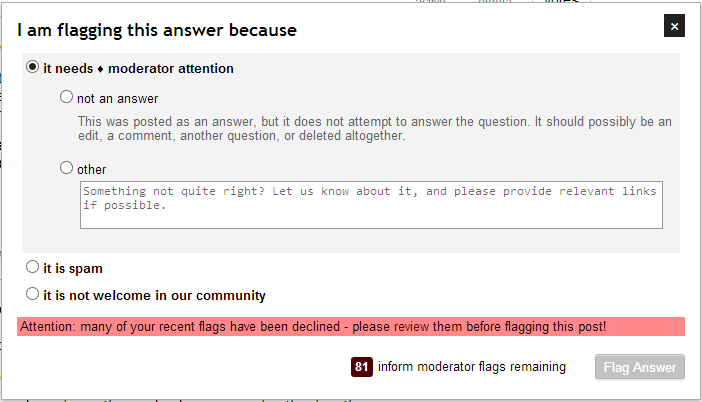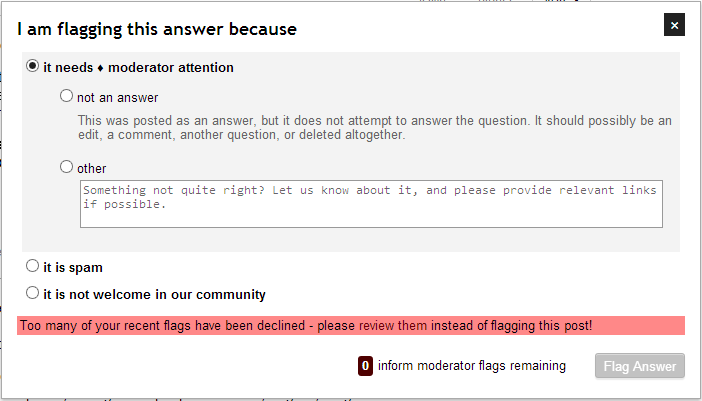We're in the middle of a *major* re-write of the entire flagging system. As part of this, we're re-thinking how flag weight (and thus "hell bans") work. Anna & I have been discussing this for a while - here's what we're looking at doing *instead:* - **Only look at folks who cast at least 10 flags a week.** There isn't much point in doing much to knock the priority of flags from people who rarely flag anything. - **If at least 10% of your flags from the past 7 days were declined**, you'll get a little warning next time you go to flag something... Along with a link to your flag history so you can see *exactly* where the problems arose.  - **If at least 25% of your flags from the past 7 days were declined**, you're blocked from flagging anything. Depending on when and how those declined flags were cast, this block could last for as little as a day, and won't ever be longer than a week.  - **For users with less than 10 flags in the past week,** look only at the status of the last flag - if it was declined, then warn as above (but with the message "Your last flag was declined..."). This handles the case where new users are confused as to what "flag" is supposed to be used for. Over time, the flag system has evolved from a rather opaque "I saw a problem, please do something" system into [a way for everyone to work hand-in-hand with the elected moderators][1]. For this to be effective, it must include *feedback* on how well you're flagging - closing that feedback loop should help our more prolific flaggers to become better at flagging, and reduce noise for the moderator teams. [1]: http://blog.stackoverflow.com/2011/01/improved-flagging/